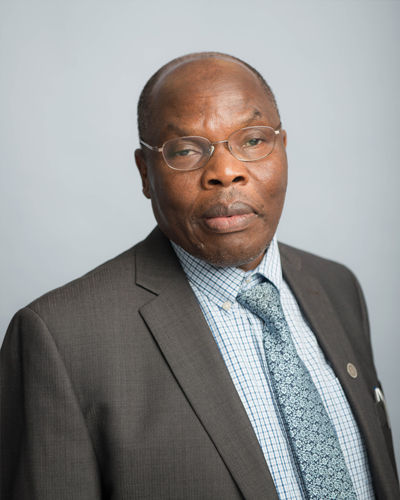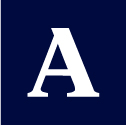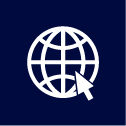
Research Interests
- Action Research
- Curriculum Studies Research
- Metacognition and Learning
- Pedagogy
- Research Design and Method
- Teacher Education Research
- Ways of Knowing
- Ways of Knowing & Ways of Teaching and Learning Science; Students’ Alternative Frameworks; Metaphorical and Analogical Teaching and Learning of Science; Metacognition and Learning Science; Refugee and Displaced Persons Education
Biography
Professor Samson Nashon is the Head of the Department of Curriculum and Pedagogy at UBC. Throughout his more than 19 year tenure at UBC he has established multiple and extensive working relationships with scholars and universities world-wide. His scholarship and administrative leadership spans multiple faculties and bodies within UBC and across numerous units within the Faculty of Education. He is an active member of the African Awareness Initiative (AAI) Board; African Studies Minor Program (Faculty of Arts) Board; International STEM Association Advisory Board; Prof. Nashon is a science educator. His research focuses on ways of teaching and learning in diverse contexts. His area of specialization focuses on nature of learning environments and students’ alternative understandings that have roots in cultural backgrounds and curricula, and are accommodative of students with varying degrees of abilities. His major research initiatives have resulted in multiple large-scale collaborations including: the Metacognition and reflective inquiry (MRI); East African Students’ ways of knowing (EASWOK); The status of Physics 12 in BC; The nature of analogies Kenyan physics teachers use, and Students’ access to senior science and mathematics courses in rural BC; Living, learning and teaching in the Dadaab (LLTD) Refugee Camp.
Prof. Nashon’s experience as a former high school teacher of physics and mathematics, teacher educator, and mentor of in excess of 34 PhD and 50 Masters students in the capacity of principal supervisor, co-supervisor or committee member. His extensive experience as an editor of curriculum materials related to science and mathematics, provides him with a lens through which he examines the link between theory and practice in the classroom, the nature of science curricula, how the curricula material is taught, and the role that students’ preconceptions play in the teaching and learning of such material. He previously taught a physics methods course to preservice teachers, Foundations Research Methods, Action Research Methods, and several science education and other advanced doctoral level graduate courses.
Prof. Nashon’s research focuses broadly on ways of teaching and learning science, and is characterized by three main emphases.
- Understanding the nature of science curriculum and instruction and development of theoretical and pedagogical models to improve the practice of science teaching: Understanding the nature of science curriculum and instruction was the focus of his Diploma in Educational Studies (DES), MEd, and EdD dissertation topics. In both the DES and MEd theses, HE explored questions about and proffered suggestions regarding the nature of science offered and the associated pedagogy in Kenyan high schools. HIS EdD dissertation also raised questions about the viability of the widely used anthropomorphic analogies in Kenyan high school science instruction. Further, the doctoral work formed the foundation for part of his research program here at UBC, which focuses on the development of theoretical and pedagogical models to improve the practice of science teaching, including “Working with Analogies” (WWA) published in OISE Papers for STSE Education (Nashon, 2000), Canadian Journal of Science Mathematics and Technology Education (Nashon, 2004), and Research In Science Education (Nashon, 2004). Prof. Nashon has also developed “School Physics Instructional Model” (SPIM) based on insights from the study, High school science in BC: The status of physics 12 (Nashon, 2007), which highlights the issues of instruction and teacher beliefs as among the key factors influencing student subject choice.
- Understanding the science learner: Prof. Nashon investigates the nature and character of the conceptions of science that learners hold from a phenomenological perspective. Also, he elucidates the effect of learners’ prior knowledge and experience, socio–cultural background and learning contexts on their individual and group learning through research projects such as, The Nature of Metaphorical, Analogical and Simile–like Expressions for HIV/AIDS: A case study of Ugandan Biology Classrooms, which revealed how Ugandan students’ preconceived understandings of HIV/AIDS affect classroom instruction about the science of HIV/AIDS. The study served as a motivation for a 2006 – 2010 SSHRC funded study, East African Students’ Ways of Knowing in Science Discourses, which aimed to investigate and elucidate EA students’ ways of understanding the world. Within this realm of research, a 2010-2015 SSHRC funded study that investigated the effect of students’ learning on teachers’ teaching in East Africa was developed with very interesting insights being generated and disseminated through various academic and professional media or forums.
- Understanding the deep meta–level mechanisms of science learning: This line of research focuses on identifying, describing, and understanding the underlying higher–order learning processes or agents that govern knowledge construction including: (a) Metacognition, as is the case in the SSHRC funded multi–national research collaborative study, Metacognition and Reflective Inquiry (MRI): Learning Across Contexts, which provided theoretical insights into how students engage metacognition in novel problem solving situations. The study led to the inclusion of a field trip to an amusement park in our physics methods course for pre–service teachers here at UBC with the intent of fostering appreciations of the richness of this context in providing novel learning opportunities for students. As an offshoot, “BC Brightest Minds Competition”, with Prof. Nashon as one of the two lead facilitators and sponsored by Pacific National Exhibition (PNE), was inaugurated in 2006 as an annual event for several years before funding ended. (b) Ways of knowing through one’s position/view on the nature of science and cultural lens(es), such as the 2006–2010 SSHRC funded research project, East African Students’ Ways of Knowing in Science Discourses on which Prof. Nashon was principal investigator. It examined East African students’ Ways of Knowing in science through case studies of selected Kenyan schools. The study concluded that students’ Ways of Knowing are shaped by their socio–cultural backgrounds, which in turn translate into their worldviews and perceptions of science. The study, which commenced in September 2006, investigated East African students’ Ways of Knowing in the context of science curriculum implemented through a program that integrated analysis of Jua Kali (an informal sector defined by UNESCO as “small–scale manufacturing and technology–based services”) production activities with conventional classroom science. Building on findings from this study another SSHRC funded study (2010 – 2015), Teacher Pedagogy and School Culture: The Effect of Student Learning on Science Teachers’ Teaching and Culture in East Africa on which Prof. Nashon was also the principal investigator, was framed to investigate the transformations in East African science teachers’ teaching culture, their pedagogies, and collective school culture as they navigate through and experience their students’ learning mediated through science curricular reforms. The 2006–2010 SSHRC funded study revealed the importance of the effect of students’ learning experiences on teachers’ teaching culture, their pedagogies, and school culture. Understanding this effect has been critical to helping Kenyan science teachers design curricular and pedagogical models to enhance science teaching through local contexts. Moreover, student learning and performance are very important motives behind any curricular or pedagogical reform. Thus, the study provided new insights into teachers’ Pedagogical Content Knowledge (PCK) in cultural contexts beyond Western perspectives.
In all, the studies Prof. Nashon conducts are largely framed around the three emphases. His objective is to share research findings with others through forums such as collaborative course development and implementation, mentorship programs for graduate students, national and international conferences, and print publications.
Selected Publications
Refereed Publications
Journals
Parvanehnezhad, Z. & Nashon, S. M. (2019). Interpreting physics teachers’ feedback comments onstudents’ solutions to motion tasks. International Journal of Education, 7(1), 25 – 46.
Hoffman, D., Krzic, M., Nashon, S. & Schmidt, M. (2017). Blending multimedia and face-to-Face teaching to enhance learning about the forest floor. Natural Sciences Education, 46, Online, 1 – 10.
Ooko, S., Beru, F. K., Nashon, M. S., Anderson, D., & Namazzi (2017). Contextualized Science Teaching and Student Performance: The Case of a Kenyan Girls Science Class, International Journal of Engineering Education, 33(3), 1110 – 1116.
Nashon, S. M., Anderson, D., Okemwa, P., Kelonye, F., Ooko, S., & Ombogo, P. (2016). Student learning impact on science teachers’ teaching: The case of Form 3 science class in Kenya. Journal of Technology & Socio-Economic Development, 4, 32 – 38.
Anderson, D., Nashon, S., Namazzi, E., Okemwa, P., Ombogo, P., Ooko, S., & Beru, F. (2016). East African science teachers’ pedagogical transformations during and after enacting and experiencing student learning in a reformed contextualized science curriculum, Journal of Science Teacher Education, 26 (7), 599-617.
Tushabomwe, A., & Nashon, S. (2016). Interpreting teachers’ perceptions of contextual influences on sexuality discourses within the school curriculum: Lessons from sex health education teachers in Kampala, Uganda. Canadian Journal of Science, Mathematics and Technology Education, 16(4), 331-344.
Nashon, S. (2016). Proposing methodological approaches to elucidating African Canadian students’ metacognition across contexts. In A. Ibrahim and A. A. Abdi (Eds.), The Education of African Canadian Children: Critical Perspectives (pp.112 – 130). Montreal: McGill-Queens University Press.
Lekhi, P. & Nashon, S. M. (2016). How a flipped classroom promotes sophisticated epistemology: Example from a large analytical chemistry course. In J. L. Muzyka and C. S. Luker (Eds.), The Flipped Classroom Volume 1: Background and Challenges (pp. 93 – 104). Washington DC: American Chemical Society.
Anderson, D., Nashon, S., Namazzi, E., Okemwa, P., Ombogo, P., Ooko, S., & Beru, F. (2015). East African science teachers’ pedagogical transformations during and after enacting and experiencing student learning in a reformed contextualized science curriculum, Journal of Science Teacher Education, 26(7), 599-617.
Nashon, S. M., Anderson, D., Okemwa, P., Kelonye, F., Ooko, S., & Ombogo, P. (2015). Student learning impact on science teachers’ teaching: The case of Form 3 science class in Kenya. Journal of Technology & Socio-Economic Development, 4, 32 – 38.
Fu, G. & Nashon, S. M. (2015). Collective agency among physics teachers: A case in China’s curriculum reform. International Journal of Secondary Education, 2(6), 94 – 101.
Tan, Y. S. M., & Nashon, S. M. (2014). Promoting teachers’ collaborative exploration of a new science curriculum: the case of a Singapore learning study. Professional Development in Education, 41(4), 671-689.
Tan, Y. S. M., & Nashon, S. M. (2013). Promoting teacher learning through learning study discourse: The case of science teachers in Singapore. Journal of Science Teacher Education, 24(5), 859-877.
Dharamsi, S., Nashon, S., Wong, A., Bain, P., McElligot, K., & Baines, E. (2013). Saving Africa: A critical study of advocacy and outreach initiatives by university students. Journal of Global Citizenship and Equity Education, 3(1), 53 – 67.
Nashon, S. M., & Madera, E. (2013). Instrument for assessing disposition for contextual learning of science of students in East Africa, SAGE, DOI: 10.1177/2158244013494862.
Nashon, S. M. (2013). Interpreting Kenyan science teachers’ views about effect of student learning experiences on their teaching. Canadian Journal of Science, Mathematics and Technology Education, 13(3), 213 – 231.
Nashon, S. M., & Anderson, D. (2013). Interpreting student views of learning experiences in a contextualized science discourse in Kenya. Journal of Research in Science Teaching. 50(4), 381- 407.
Nashon, S. M., & Anderson, D. (2013). Teacher change: The effect of student learning on science teachers’ teaching in Kenya. International Journal of Engineering Education, 29(4), 1 – 7.
Nashon, S. M., Ooko, S., & Kelonye, F. B. (2012). Understanding, interpreting and profiling Kenyan students’ worldviews of science learning. Journal of Technology and Socio-Economic Development. 1(1), 346-352.
Nashon, S. M., & Nielsen, S. W. (2011). Connecting student self-regulation, metacognition and learning to analogical thinking in a physics problem-solving discourse. Education Research Journal, 1(5), 68 – 83.
Nashon, S. M., Ooko, S., & Beru, F. K. (2011). Understanding, interpreting and profiling Kenyan students’ worldviews of science learning. Journal of Technology and Socioeconomic Development, 1(1), 346 – 352.
Milner–Bolotin, M., & Nashon, S. M. (2011). The essence of student visual–spatial literacy and higher order thinking skills in undergraduate biology. Protoplasma: An International Journal of Cell Biology, 249(1), 25 – 30
Ladachart, L., & Nashon, S. M. (2010). Alternative frameworks in conceptions of sound: A historical evolution. International Journal of Education, 33 (2), 3–24.)
Ladachart, L., Nashon, S. M., & Roadrangka, V. (2010). A Thai physics teacher’s conceptual difficulties while teaching unfamiliar content. KKU Research Journal, 15(4), 304–316.
Mutonyi, H., Nashon, S., & Nielsen, W. S. (2010). Perceptual influence of Ugandan students’ understanding of HIV/AIDS. Research In Science Education, 40, 573–588.
Anderson, D., Nashon, S., & Thomas, G. (2009). Evolution of research methods for probing and understanding metacognition. Research In Science Education, 39(2), 181 – 195.
Nashon, S. M., Anderson, D., & Nielsen, W. S. (2009). An instructional challenge through problem solving for physics teacher candidates. Asia–Pacific Forum on Science Learning and Teaching, 10(1), 1– 21.
Nielsen, W. S., Nashon, S., & Anderson, D. (2009). Metacognitive engagement during field–trip experiences: A case study of students in an amusement park physics program. Journal of Research in Science Teaching, 46(3), 265–288.
Nashon, S., Nielsen, W., & Petrina, S. (2008). Whatever happened to STS? Pre–service physics teachers and the history of quantum mechanics. Science and Education, 17, 387–401.
Thomas, G., Anderson, D., & Nashon, S. (2008). Development and validity of an Instrument designed to investigate elements of science students’ metacognition, self–efficacy and learning processes: SEMLI–S. International Journal of Science Education, 30(13), 1701–1724.
Anderson, D., & Nashon, S. (2007). Predators of knowledge construction: Interpreting students’ metacognition in an amusement park physics program. Science Education, 91(2), 298–320.
Mutonyi, H., Nielsen, W., & Nashon, S. M. (2007). Building scientific literacy in HIV/AIDS education: A case study of Uganda. International Journal of Science Education, 29(110), 1363–1385.
Nashon, S., Anderson, D., & Wright, H. (2007). African ways of knowing, worldviews and pedagogy. Journal of Contemporary Issues in Education, 2(2), 1–6.
Nashon, S., & Nielsen, W. (2007). Participation rates in Physics 12 in BC: Science teachers’ and students’ views. Canadian Journal of Science, Mathematics and Technology Education, 7(2/3), 93–106.
Nielsen, W., & Nashon, S. (2007). Accessing science courses in rural BC: A cultural border crossing metaphor. Alberta Journal of Educational Research, 53(2), 174–188.
Wright, H. K., Nashon, S., & Anderson, D. (2007). Re–thinking the place of African worldviews and ways of knowing in education. Diaspora, Indigenous and Minority Education, 1(4), 239–246.
Nashon, S. M. (2006). A proposed model for planning and implementing high school physics instruction. Journal of Physics Teacher Education Online, 4(1), 6–9.
Hisasaka, T., Anderson, D., Nashon, S., & Yagi, I. (2005). Research regarding children’s metacognition in physics learning environments: Using cognitive psychology to improve physics education. Physics Education in Tohoku, 14, 69–74.
Nashon, S. M. (2005). Reflections from pre–service science teachers on the status of Physics 12 in British Columbia. Journal of Physics Teacher Education Online, 3(1) 25–32.
Hisasaka, T., Anderson, D., Nashon, S., Shigematsu, K., Watanabe, E., & Yagi, I. (2004). Recognition of amusement park as a studying space. Physics Education in Tohoku, 13, 31–34. (SA)
Nashon, S. M. (2004). The nature of analogical explanations high school physics teachers use in Kenya. Research in Science Education, 34, 475–502.
Nashon, S., & Anderson, D. (2004). Obsession with ‘g’: A metacognitive reflection of a laboratory episode. Alberta Journal of Science Education, 36(2), 39–44.
Nashon, S. M. (2003). Teaching and learning high school physics through analogies in Kenyan classrooms. Canadian Journal of Science, Mathematics, and Technology Education (CJSMTE) 3(3), 33–345.
Nashon, S. (2001). A question of improvisation: Teaching school science in Kenya. OISE Papers in STSE Education, 2, 211–220.
Nashon, S. (2000). Teaching physics through analogies. OISE Papers in STSE Education, 1, 209–223.
Editorships
Nashon, S., Anderson, D., & Wright, H. (Guest Eds.) (2007). African ways of knowing, worldviews and pedagogy. Journal of Contemporary Issues in Education, 2 (2).
Wright, H.K., Nashon, S., & Anderson, D. (Guest Eds.). (2007). African education: Worldviews, ways of knowing and pedagogy. Diaspora, Indigenous and Minority Education, 1( 4).
Books
Madera, S. (1996). Revision mathematics for primary teacher education. Nairobi: East African Educational Publishers.
Madera, S., Ngure, J., Sabwa, D., & Achola, C. (1994). EAEP Primary mathematics book 7. Nairobi: East African Educational Publishers.
Madera, S., Ngure, J., Sabwa, D., & Achola, C. (1994). EAEP Primary mathematics book 8. Nairobi: East African Educational Publishers.
Book Chapters
Nashon, S.M., Anderson, D., Beru, F.K., Okoo, S. (2020). Contextualizing science education as an engagement strategy for the African learner. In A.A. Abdi (Ed.), Critical theorizations of education. Brill: Leiden, Netherlands.
Nashon, S.M., Anderson, D., & Okemwa, P. (2020). Teacher change and math/science reaching in Kenya: Transformative attributes in student learning. In Kakoma Luneta (Ed) Developing and implementing professional development initiatives that address mathematics instruction for Sub Sahara Africa. Springer: New York.
Miller, L. Lea, G., Irwin, R., Nashon, S., Jordan, E., Baker, K., & Stranger-Johannessen, E. (In Press). Academic Philanthropy and Pedagogies of Resilience. In Giles, W. & L. Miller Eds. Borderless Higher Education for Refugees: Lessons from the Dadaab Refugee Camps. Bloomsbury UK, page number TBD.
Meyer, K., Nicol, C., Maalim, S., Olow, M., Ali Hirsi, A., Nashon, S., Bulle, M., Hussein, A., Imaan, A., Hassan, H. (2019). Crossing borders: A story of refugee education. In (Eds.) N. Ng-A-Fook, A. Ibrahim, W. F. Pinar, B. Smith, and C. Hebert. Internationalizing Curriculum Studies: Histories, Environments, and Critiques. (pp. 107-124). Cham, Switzerland: Palgrave Macmillan Press.
Khamasi, J., Nicol, C., Meyer, K. & Nashon, S. (2019). Living, learning and teaching in a refugee camp: Biographies of perseverance. In K. Arar, K. Haj-Yehia, D. Ross & Y. Kondakci (Eds.) Higher education challenges for migrant and refugee students in a global world (pp.283-295). New York, NY: Peter Lang Publishing. (Equity in Higher Education Theory, Policy and Praxis book series).
Boškić, N., Sork, T., Irwin, R., Nashon, S., Nicol, C., Meyer, K., & Hu, S. (2018). Using technology to provide higher education for refugees. In E. Francois (Ed.) Transnational Perspectives on Innovation in Teaching and Learning Technologies (pp. 285-304). Boston, MA: Brill/Sense Publishers.
Meyer, K., Nicol, C., Mallim, S., Olow, M., Alim A., Nashon, S., Bulle, M., Hussein, A., Hussein Mohamad, A., Hassan, H. (2018). “Dadaab refugee camp and the story of school” In C. Leggo & E.Hasabe-Ludt (Eds.), Canadian Curriculum Studies: A Métissage of Inspiration/Imagination/Interconnection (pp. 257-265). Toronto: Canadian Scholars.
Nashon, S. (2016). Proposing methodological approaches to elucidating African Canadian students’ metacognition across contexts. In A. Ibrahim and A. A. Abdi (Eds.), The Education of African Canadian Children: Critical Perspectives (Chapter 8. Pp.112 – 130). Montreal & Kingston: McGill-Queens University Press.
Lekhi, P. & Nashon, S. M. (2016). How a flipped classroom promotes sophisticated epistemology: Example from a large analytical chemistry course. In J. L. Muzyka and C. S. Luker (Eds.), The Flipped Classroom Volume 1: Background and Challenges (Chapter 9, pp.93 – 104). Washington DC: American Chemical Society.
Nashon, S. (2012). Reframing and indigenizing science education in Africa. In Handel K. Wright and Ali A. Abdi (Eds.), The Dialectics of African Education and Western Discourses: Appropriation, Ambivalence and Alternatives (Chapter 8). New York: Peter Lang Publishing.
Nashon, S. M., & Adler, J. D. (2012). Constructivist, analogical and metacognitive approaches to science teaching and learning. In F. Ornek and I. M. Saleh (Eds.), Contemporary Science Teaching Approaches: Promoting conceptual understanding in science (chapter 5). Charlotte, NC: Information Age Publishing, INC. (FA)
Research Projects
Funded Research Project Participation
Educating About Hazards of Choking (Be Smart, Don’t Choke)
Granting Agency: UBC Hampton Fund; BC Children’s Hospital Foundation; Dr. Keith Riding Inc.; Karl Storz Endoscopy Canad LTD; Xomed Metronic & GlaxoSmithKline. Year: 2008 – Ongoing Collaboration with multiple Financial Supports
(https://dontchoke.ubc.ca/about/our-team/
https://dontchoke.ubc.ca/about/acknowledgements/
Learning as boundary crossing practices: An exploratory study of immigrants in the engineering profession in Canada
Granting Agency: SSHRC. Year: 2014 – 2017
Constitution of transnational social space: Migrant women managing careers in sciences and engineering between China and Canada
Granting Agency: UBC Hampton Grant. Year: 2014 – 2016
Living, Learning and Teaching in a Refugee Camp
Granting Agency: SSHRC. Year: 2013 – 2018
Developing a Knowledge Creation and Research Mobilization Partnership for Studying Teacher Learning within a Refugee Camp
Granting Agency: UBC Hampton Grant. Year: 2012 – 2014
Building primary/secondary teaching capacities in the Dadaab camps, Kenya by increasing access to higher education
Granting Agency: CIDA. Year: 2012 – 2017
Investigating the “Best Technology–Based Science Instructional Practices” in Canadian and Korean Secondary Teacher Education Programs
Granting Agency: UBC Hampton Grant. Year: 2011 – 2013
UBC Sustainability Initiative Teaching & Learning Spotlight Programme: A Proposal for Transforming Sustainability Education in Teacher Education
Granting Agency: UBC University Sustainability Initiative. Year: 2011 – 2012
Elementary Teachers As Designers of Technology–Enhanced Science Instruction: The effects on teachers’ views of the Nature of Science and Technological Pedagogical Content Knowledge
Granting Agency: HSS Large. Year: 2010 – 2012
Teacher Pedagogy & School Culture: The Effect of Student Learning on Science Teachers’ Teaching and Culture in East Africa
Granting Agency: SSHRC. Year: 2010 – 2015
Educating about Hazards of Choking
Granting Agency: UBC Hampton Grant. Year: 2008 –2010
Expanding the Masters in Museum Education: A Cross–institutional, Trans–disciplinary program for New Audiences, New Visions, and Critical Issues in Museum Education
Granting Agency: University Investment Fund. Year: 2008 –2009
Aboriginal Transitions: Undergraduate to Graduate Studies (AT: U2G) UBC
Granting Agency: BC Ministry of Education. Year: 2007 –2010
East African Students’ Ways of Knowing in Science Discourses
Granting Agency: SSHRC. Year: 2006 –2009
Investigating The Relationship Between Philosophical, Pedagogical, And Content Knowledge Among Elementary Science Teacher Candidates
Granting Agency: UBC Enhancing Research and Inquiry in Teacher Ed. Year: 2005 –2008
Investigating the Impact of Interactive Lecture Experiments (ILE) on Undergraduate Students’ Academic Achievement, Motivation and Attitudes Towards Science
Granting Agency: UBC TLEF (Collaborator). Year: 2004 –2008
Metacognition and Reflective Inquiry (MRI): Understanding Learning Across Contexts
Granting Agency: SSHRC. Year: 2004 –2008
The Nature of Metaphorical, Analogical and Simile–like Expressions for HIV/AIDS: A case study of Ugandan Biology Classrooms
Granting Agency: Faculty of Education Masters Students Research Assistantship Grant. Year: 2004
Accessing science and Mathematics Course Offerings: A Case of Rural BC High Schools
Granting Agency: Faculty of Education Masters Students Research Assistantship Grant. Year: 2003
High school science in BC: The status of Physics 12
Granting Agency: UBC Humanities & Social Sciences (HSS) Large Grant. Year: 2002 –2004
Why high school students do not major in physics: Perspectives from UBC science teacher candidates
Granting Agency: HSS Hampton New Faculty Start–up Grant. Year: 2002



